In this article
View 2 More +Cats have had a reputation of being somewhat aloof and independent. But sometimes, we forget that our kitties can become stressed, too. The good news is that in some scenarios, their stress can be managed with some environmental tweaking.
Read on to learn more about the fundamentals of stress in cats and what you can do in some situations if you suspect that your cat is indeed stressed.

Understanding Stress in Cats
Fundamentally, cats (like all other pets) are susceptible to two main categories of stress:
- External stress: This is something in your cat’s surroundings, also known as their external environment, that your cat doesn’t seem to agree with.
- Internal stress: This refers to your cat’s body itself; diseases and ailments can lead to a stressed internal environment.
Whether or not your cat will find something in their external environment stressful depends largely on your pet’s personality, their past experiences, and their general comfort level with their living environment. What stresses out one cat may be a non-factor for another cat. For example, new furniture can be perceived as a threat by some cats, whereas other cats would curiously explore, sniff, and possibly even try to scratch the “foreign intruder” in the form of furniture.
However, what’s important is that if your cat does experience external stress and has a very shy or reserved personality, the stress can predispose them to medical issues that could require veterinary care. One of the most common problems that comes from unaddressed external stressors is difficulties with urination.
Under normal circumstances, if something does stress your cat, their body’s initial response will be to try and restore itself to a normal state, also known as homeostasis. Persistent stress that they cannot seem to avoid, control, or get rid of may lead to health issues in pet cats. Therefore, knowing your cat’s personality is key to knowing how much of a factor environmental stressors would be for your pet.
Signs of Stress in Cats
The signs that your cat is uncomfortable with something in their environment are important to take into consideration, as these can provide clues to know if you should investigate the matter or not.
- Running away and hiding
- Refusing to come out of hiding
- Hissing at something new
- Growling, swiping at, or biting something new
- Spraying
- Refusing to eat
- Refusing to play
- Refusing to cuddle
- Changes in litter box habits
- Changes in their usual routine (for example, your pet no longer sleeps in their favorite spot)
- Unexplained or unexpected bouts of aggression
If your cat seems to be showing such signs, a good starting point is to seek veterinary input. At the same time, you can take steps to help remove some sources of stress for your cat.
If your cat shows signs of the symptoms above or you suspect they might be suffering from underlying health issues, you should contact your vet.

The 7 Ways to Help a Cat With Stress
1. Catify a Space
One of the best ways to help your cat go from stressed to serene is to “catify” a space. By this, we mean turning the area (usually a room in your house) into a cat paradise. This would be a safe space for your cat to retreat to if they’re ever uncomfortable.
Fill the room with cat trees and scratchers for climbing and clawing. Ensure your cat has access to a litter box, their favorite toys, beds, and drinking water in this room. Make the space an area where your cat feels comfortable and at peace.
The Hepper Hi-Lo Modern Cat Scratcher is a functional and stylish design that makes it the ultimate scratching spot for your cat – and a superhero in the battle against furniture destruction. Unlike most cat toys that end up being ignored, this one's a crowd-pleaser for both cats and their hoomans.
With its 3 configurations, thick textured cardboard, and solid birch plywood frame, it encourages your cat's natural scratching instincts, so they stay away from your precious furniture, rugs, and curtains, among all other things they shouldn't scratch. The Hi-Lo is like your home's mini guardian, keeping it safe while looking super sleek and trendy. At Catster, we’ve admired Hepper for many years, and decided to take a controlling ownership interest, so that we could benefit from the outstanding designs of this cool cat company!
2. Routinely Interact Your Cat
As cat owners, we often underestimate our pet’s emotional attachment to us. Research has shown that cats that have been separated from their owners for prolonged periods spend more time interacting with them upon their return 1. Other researchers have highlighted key signs a cat shows when they’re separated from their favorite family members 2.
If your cat is used to interacting with you on a regular basis, then you should try your best to keep up with the expected cuddling sessions that your cat is used to. Doing so will help prevent stress in your cat.
However, if a cat is in a state of panic and fright and wants to hide, you should not force an interaction with them, as doing so will likely make matters worse. In such situations, your goal should be to identify and remove the stressor, while allowing your cat the space they require, if possible.
Routinely interacting with your cat doesn’t necessarily reduce their stress, but it does help prevent stress in circumstances where your cat is used to routinely interacting with you.
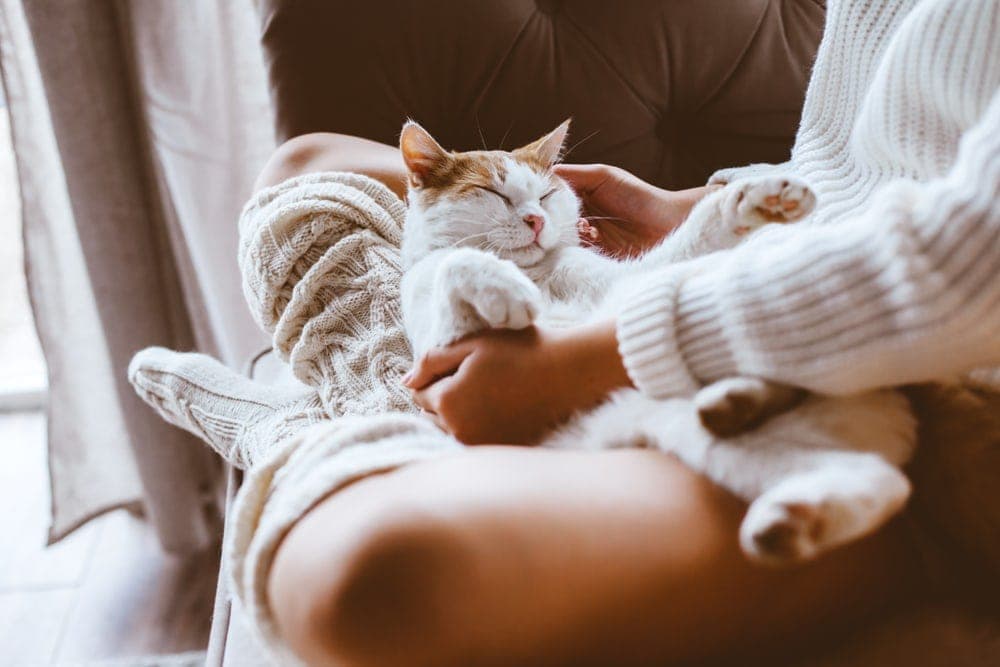
3. Try a Synthetic Pheromone
If you haven’t tried Feliway before, we recommend giving it a shot. Feliway is a synthetic pheromone that can help cats in some uncomfortable situations. However, it isn’t considered the equivalent of a veterinarian’s input, nor is it a substitute for cats that need medication.
4. Separate Pets
At times, multi-pet households can experience fights and bouts of tension when one pet is taken to the veterinarian or to a place where they pick up the scents of strange pets. Cats recognize each other by scent, not sight.
Therefore, upon your pet’s return, you may notice that your cats suddenly seem to treat each other like strangers. This can definitely lead to fights, and both animals may experience stress in such a confrontation. It’s important to reintroduce your cats slowly after such periods of separation.
One tip is to keep spare soft towels at hand, which you rub on your “home” cat and then on your “trip” cat after this kind of day. This can help transfer their scent back onto each other and ease the reintroduction. At other times, you may need professional help to help reintroduce your pets together. Until then, it’s best to separate your pets.
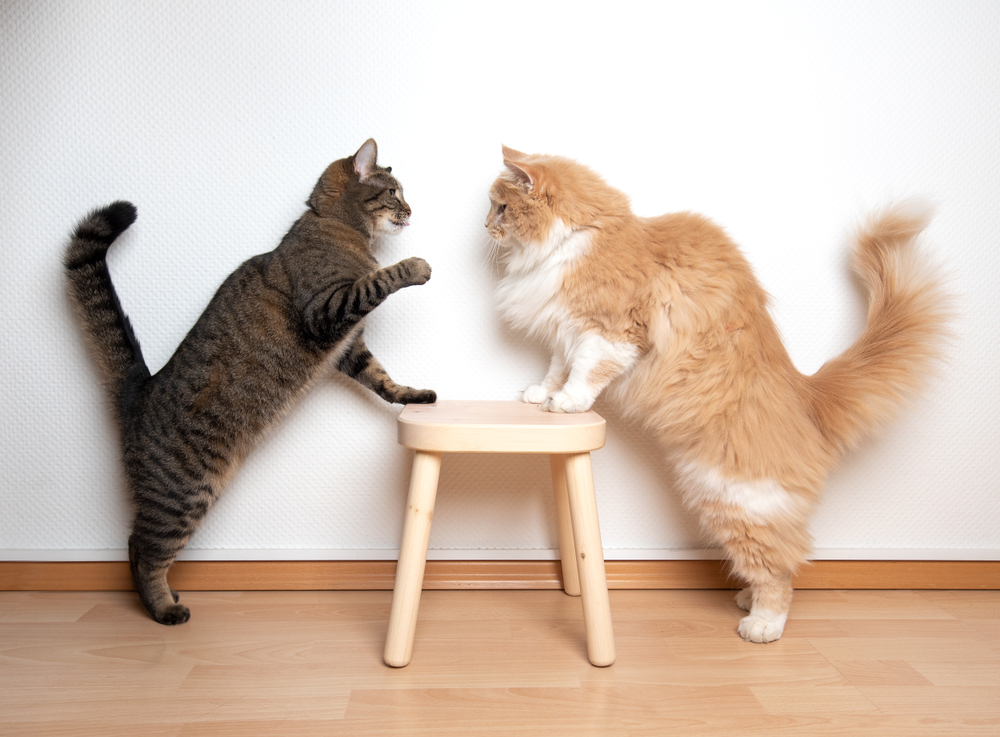
5. Leave Your Cat Be
Sometimes, being left alone is all your pet wants. Give your cat space and allow them to come to you when they’re ready. This is especially important during a frightful episode. Cats should be allowed to hide if they’re suddenly spooked by something. When the stressor is removed, your cat will likely come out of hiding on their own terms.
6. Veterinary Care
At times, your cat’s stress might be due to an underlying health issue. For example, cats with hyperthyroidism can be very easily agitated and often lash out unexpectedly. In such a situation, you need veterinary care and should follow your veterinarian’s care instructions for your pet. As a rule of thumb, if you can’t understand why your pet is acting the way they are, they need to be seen by a veterinarian, as cats may act strangely due to a medical reason, a behavioral reason, or a combination of the two.
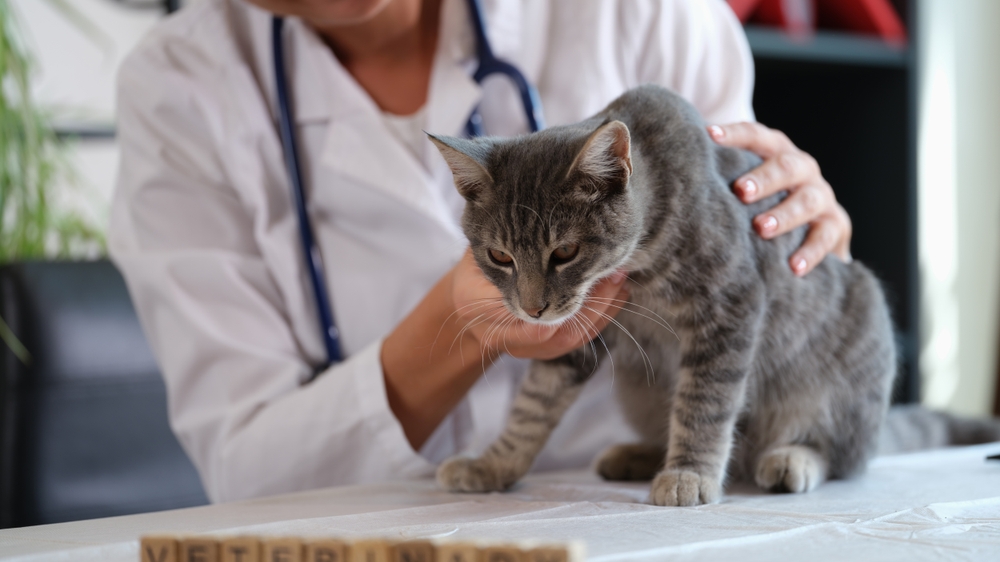
7. Check Your Stress Levels
Research has indicated that your stress levels, personality, and health can impact your cat’s behavior as well. If you feel stressed and overwhelmed, your cat may be more likely to show signs of stress as well.

Conclusion
Cats are hard to read, so we don’t always know when they’re stressed. Thankfully, there are some signs you can keep track of to know if your cat is stressed. Some stressors can be managed or mitigated by your actions, and with some effort, you can help your cat feel less stressed in some situations. However, keep in mind that stress may have health implications for your pet, and you should always seek veterinary care if you suspect that your pet cat is stressed.
Featured Image Credit: Simone Hogan, Shutterstock
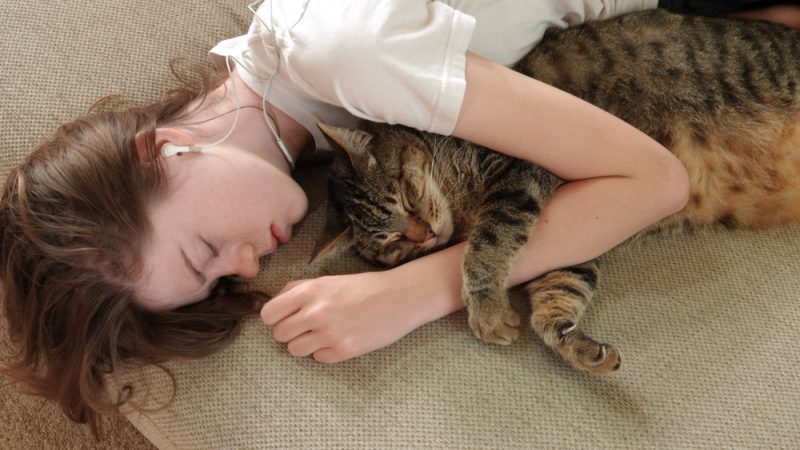



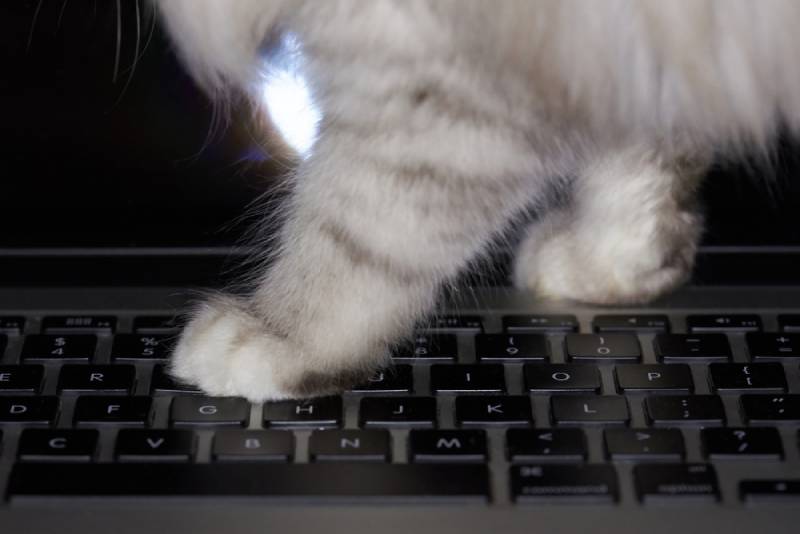

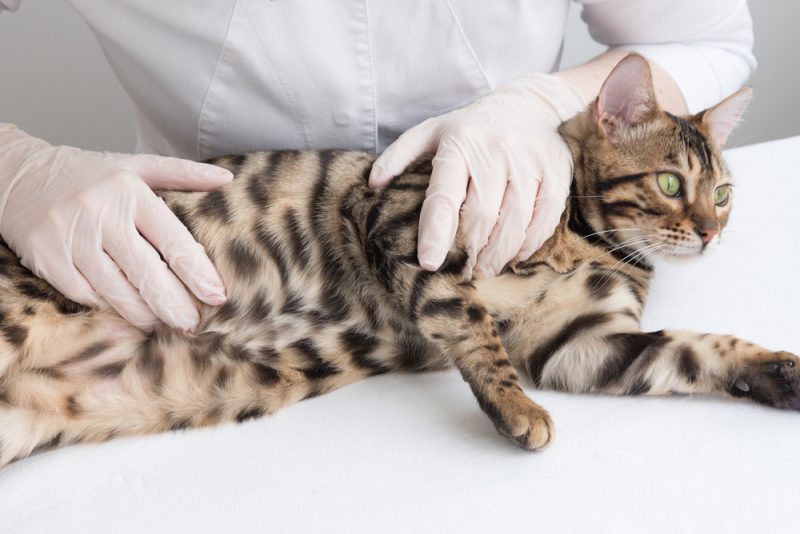

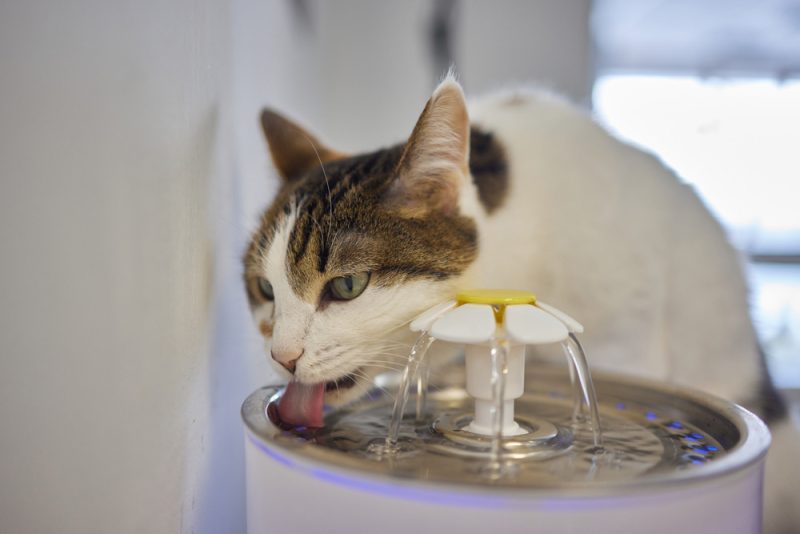

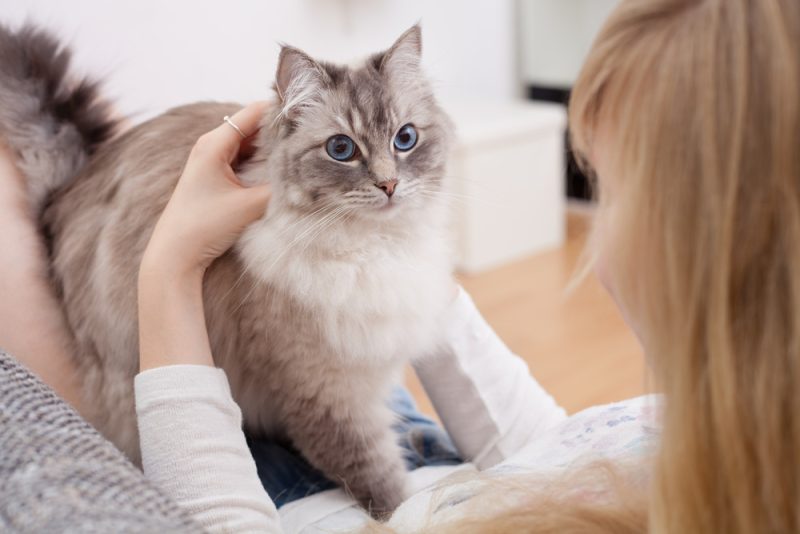

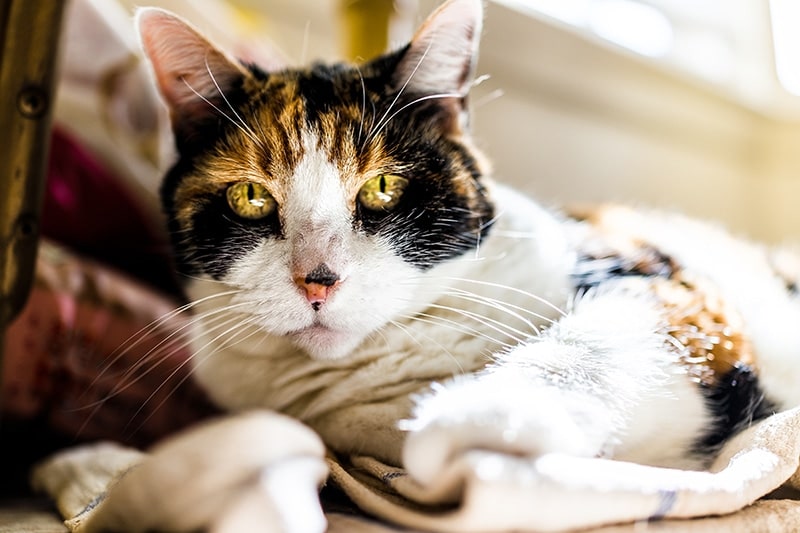
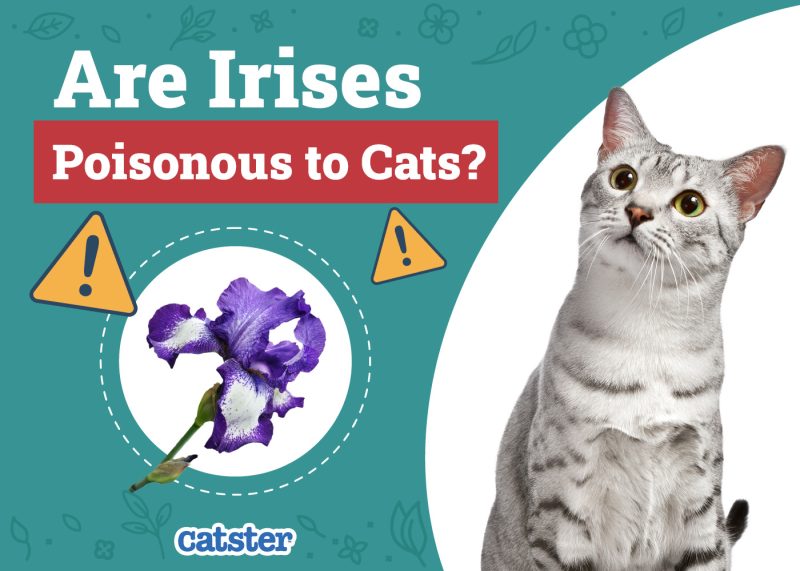
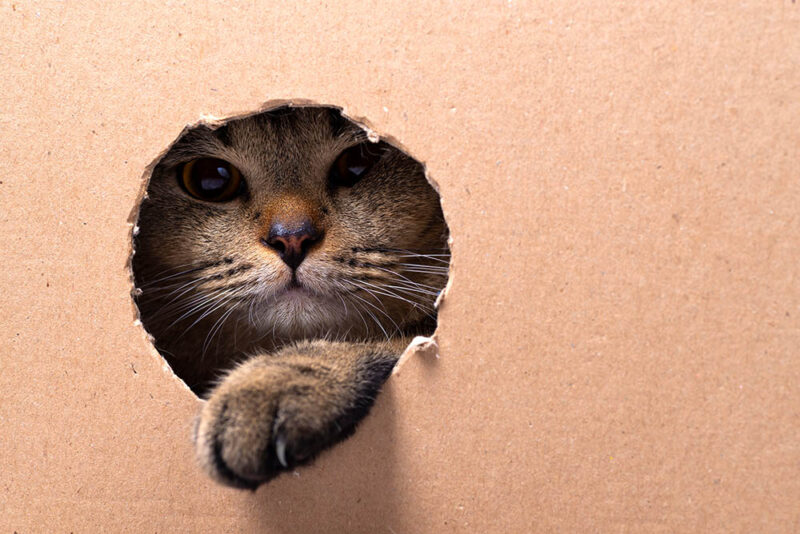


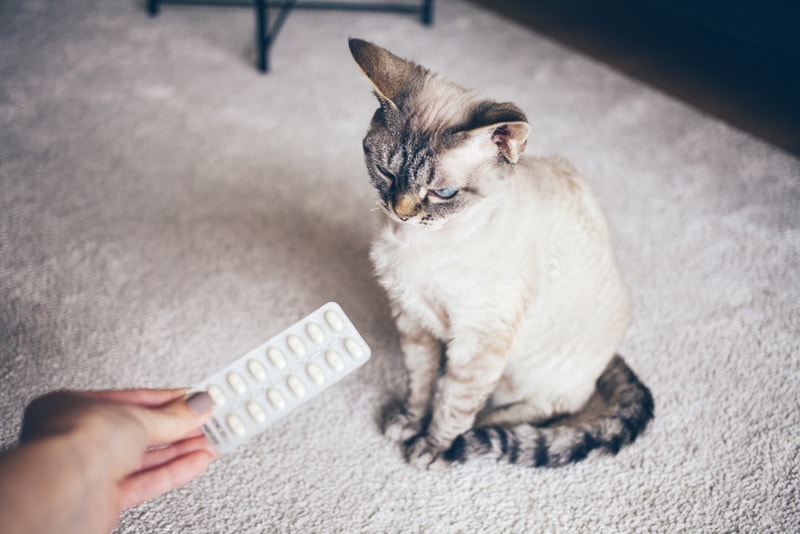
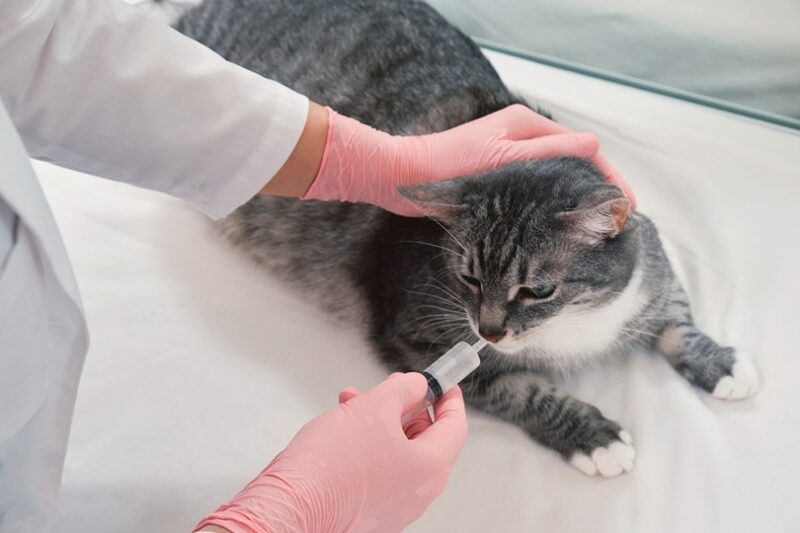

2 Responses
How to put already traumatized cat into carrier? Cat likes carrier but extremely scared of people in its space.
Hi shari, we are very sorry to hear your cat is extremely afraid of people due to trauma. The following posts have some tips you could try to put her in a carrier.
https://www.catster.com/felines-weekly/a-cat-owners-manual-cat-carriers/
https://www.catster.com/lifestyle/how-to-get-your-cat-into-a-carrier/
https://www.catster.com/lifestyle/cant-get-cat-in-carrier/
https://www.catster.com/lifestyle/how-to-crate-train-my-cat/
We hope this helps!